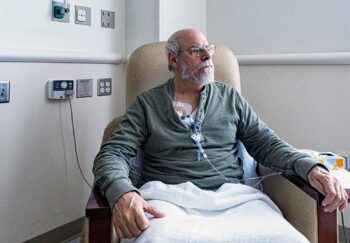The evidence is clear: A lung cancer screening can save your life. How? The screening can pick up lung cancer before you have symptoms. The earlier doctors find cancer, the earlier they can treat it. The earlier you start treatment, the more likely you are to survive lung cancer.
Already know about lung cancer screening? Even if you didn’t meet the requirements for screening before, you might now. The American Cancer Society recently updated their lung cancer screening guidelines. That means it’s open to more people than ever before.
Who Should Get a Lung Cancer Screening?
Lung cancer screening is for people at higher risk for lung cancer because of their smoking history. You should get screened if you’re a current or former smoker who:
- Has a smoking history of 20 pack years or more
- Is 50-80 years old
What Are Pack Years?
Pack years are a way to measure your smoking history. It’s how many packs of cigarettes you smoked a day multiplied by the years you smoked:
Packs per day x years smoked = pack years
You can use this tool to find your pack years.
20 pack years means you might have smoked:
- 1 pack of cigarettes a day for 20 years
- 2 packs a day for 10 years
- 4 packs a day for 5 years
How & Why Did Lung Cancer Screening Guidelines Change?
Before this update, the American Cancer Society recommended screening for people who:
- Were current smokers or had quit within the past 15 years
- Had a smoking history of 30 pack years
- Were 55-74 years old
The biggest change: You should think about screening even if you quit decades ago.
After you quit smoking, your risk for getting lung cancer decreases over time. But that doesn’t mean it goes away completely. Let’s say you smoked a pack a day for 20 years. Even if you quit decades ago, you’re still at high risk for lung cancer.
After 30 Years of Not Smoking – A Diagnosis
No one knows that better than David Lunt. Last year, he was shocked by the devastating news he had stage 4 lung cancer.
Living With Brain Metastases — and Thriving
David had little hope when he learned he had lung cancer that had spread to his brain. Learn how a targeted treatment put his cancer in retreat.
David hadn’t touched a cigarette for nearly 30 years. His lungs seemed to be in great shape. On top of that, he:
- Had no cough or shortness of breath
- Often cycled for 15- to 25-mile rides
- Was in great shape
David only learned he had cancer after his wife rushed him to the hospital last year because he had neurological symptoms, including his face twitching. At that time, he didn’t meet the requirements for lung cancer screening.
That was late August. Less than 3 months later, on November 1, the American Cancer Society announced the new screening guidelines. He’s a real-life example of the kind of person the new screening guidelines will help in the future.


